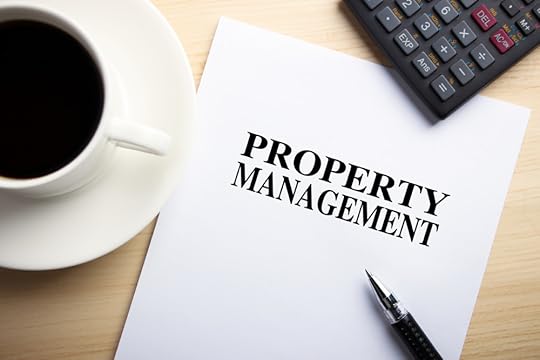Gea Elika's Blog, page 90
March 25, 2019
Don’t Be Fooled By Discount Brokers

If it sounds too good to be true, it is We’ve all heard the saying, “If something is too good to be true, it probably is.” That especially applies to discount real estate brokers. They’ve been around for quite some time. However, since the emergence of the internet, their numbers have grown. These brokers claim they will save both buyers and sellers lots of money. The facts, however, often tell a different story.
Online discount brokers started right here in the tri-state area when a new breed of tech-savvy entrepreneurs marry tech with real estate brokerage.
YHD/Foxtons “2% Commissions”
In 1999, a new online brokerage came on the scene in New Jersey and New York. It was called Your Home Direct, or YHD.com. They offered to sell a home for a 2% commission vs. the standard commission rate of 6%. YHD.com hit the market with a barrage of wall-to-wall TV spots. You couldn’t turn around without seeing a billboard, hot dog stand umbrella or hear a radio spot touting “2% commissions”. One clever billboard ad even featured the headline “Mine’s Smaller Than Yours. 2% Commission.” The response to this ad campaign was so overwhelming that YHD.com’s website and call center crashed during the first week. While the advertising targeted home sellers, buyers were the majority of calls to that call center.
YHD.com was quickly bought out by the largest broker in the U.K., Foxtons. YHD.com soon adopted the Foxtons name. With a piggy bank full of cash, Foxtons soon became the fastest growing real estate brokerage in the U.S. In one month alone they closed 500 homes in New Jersey. Home sellers were tripping over themselves to list their properties with the company. Traditional brokers feared for their existence. Had their model become the Dodo bird of real estate?
All Good Things Must Come To An End
Foxtons was able to charge a 2% commission because they did not pay agents a commission. Instead, they paid them a small salary and loaded them up with lots of listings. Some agents juggled upwards of 70 listings at a time. Such a workload was impossible to manage. Quite often, the last time a home seller would hear from a Foxtons agent was when they listed their property. Then, radio silence. Buyers too were ignored.
Before long, word got out that dealing with Foxtons was an absolute nightmare. Business trailed off, and when the financial crisis hit, Foxtons was no more. When they closed their doors, they were $40 million in the hole.
A New Crop of Discounters and Rebates Emerge
The Foxtons experience did not dissuade others from following the discount and rebate model. Today, there are many brokers who offer low commissions to sellers or rebates to buyers. For example, Redfin, the national “tech-enabled” broker will list a home for a 1% commission.
Others offer buyers a rebate to buyers, giving them a percentage of the buy side commission.
There is an underlying problem with discount brokers. If a broker is going to cut their fees, they have to cut something to pay for that. They cut service. Not having the undevoted attention and full service of an experienced agent can be problematic, particularly for buyers the purchase of a home is likely the largest investment they’ll ever make. It’s not the time to pinch pennies.
Buyers and sellers need only to look at the economics of a home transaction to see that low commissions and rebates don’t add up. What appears to be a great deal, really isn’t.
1 + 1 doesn’t = A Better Deal For Sellers and Buyers
It’s almost impossible for a real estate brokerage to make money charging very low commission rates. A 6% commission isn’t really 6% in the pocket of a single agent, as many think. That 6% is split between the listing broker and the agent, who works for him. The remaining 3% goes to the broker and agent representing the home buyer.
A 6% commission is really a 1.5% commission for four people. That doesn’t leave much for anyone when the commission or rebate is thrown in. Often commissions are also 5% which reduce the net sum further.
Home Buyers Need Someone Good In Their Corner
A buyer entering the home buying arena without professional help is like a gladiator walking into the Coliseum without a weapon. Your opponent – the seller – has with them a savvy agent armed with every trick of the trade, ready to get the best deal for their client, at your expense. Buyers should have someone in their corner whose fiduciary duty is to represent their interests and their interests alone.
To get the best price, home buyers should turn to those who do home buying for a living. Knowing the current market value of a property is hard unless you follow it on day by day basis. Finding the right apartment or townhouse can be difficult hard to given the excess of properties not worth buying in NY, for example. And negotiating the deal requires particular expertise. No country would go into trade negotiations with another country without a professional negotiator by their side. This principle holds for buying a home.
The simple fact is, using a really good buyer broker to represent you will, in almost every case, result in a much better deal.
NYC Requires a Special Expertise
Buying or selling a home in NYC requires a lot of extra work that typically doesn’t occur elsewhere in the country. The logistics of the sale demands specialized knowledge of the city’s laws, co-op and condo building rules – which are different in every building – and a dexterity unnecessary in, let’s say, Omaha.
Agents have to organize condo or co-op board applications and interviews, coordinate showings with listing agents, estimate the fair value and have the insight to guide you to properties worth buying. Agents also have to pull together mountains of financial and supporting documents for buyers so board members can assess and approve without issue. These are just a few of the specialized tasks agents undertake for buyers in New York. Importantly, this is not a job for part-time, underpaid or inexperienced agents who often work for discount brokers or those who hand out rebates.
If you want a happy outcome when you buy or sell a home, you shouldn’t be enticed by the claims of discount brokers or lured in rebates. If you do the math, the numbers don’t add up. As another saying goes, “There’s no such thing as a free lunch.”
The post Don’t Be Fooled By Discount Brokers appeared first on ELIKA insider.
March 24, 2019
How Will Technology Change the Real Estate Industry in the Next 20 Years?

As with most industries, technology trends have changed the real estate landscape, and there is more to come. There’s no doubt that many of the changes in recent years have been beneficial in streamlining transactions. But many agents agree that technology can be a double-edged sword. A heavy reliance on technology can create problems in people-orientated businesses. There’s also a real fear of losing touch with customers. It’s not just that paperless transactions are now the norm. Customers now have greater access to information which has made their expectations different from 10 years ago. Already, the first signs are appearing of big changes ahead in how real estate transactions are conducted. Below are some of the most interesting ones. If you want to stay ahead of the curve, here are the trends to watch for in real estate.
1. Blockchain
Just as the internet has revolutionized how we communicate and exchange information, blockchain is poised to redefine how we make transactions. It first appeared about ten years ago as a way to support cryptocurrencies such as bitcoin. But since then it has grown to be much more. It’s now lead to the creation of hundreds of new companies and billions of dollars in investment. There’s a lot to it, but the main thing to understand is that it now makes it possible to conduct big transactions without going through an intermediary. Real estate transactions require a lot of intermediaries such as banks, governments and credit card companies. This can slow down the transaction and make it more expensive. In the very near future we can expect blockchain to make the following big changes in the real estate industry:
Tokenization – Historically, it’s been the case that buyers had to be already wealthy to afford real estate as it takes years before you can liquidate and get your investment back. That’s now changing with tokenization which is using cryptocurrency to split assets into tokens that are stored on the blockchain. This allows people who want to invest in real estate to resell their share on the open market through secondary trading. It also opens up investment opportunities to people in different tax brackets that previously couldn’t. For a recent example of this, you can read the story on how the Regis Hotel in Aspen was scooped up by investors for as little as $10,000. Smart Contracts – Housing transactions typically require many middlemen, but that may change with smart contracts. Through these, it’s possible for the transaction to be done entirely between the buyer and seller with no intermediary. The seller provides all information on the property while the buyer provides all the required information on a 100% encrypted and secure blockchain. However, this shouldn’t be taken to mean it’s the end for real estate agents. Buying or selling a home is still a big emotional decision in which agents can lend a helping hand. It’s more likely that the technology will be used to make agents far more efficient.Property Title – Title insurance is an enormous industry with mountains of data stored either digitally or on paper. Blockchain now makes it possible to decentralize all this data and free up a lot of time and money. It may even eliminate the need for title insurance. However, putting all title on the blockchain would be an extremely laborious and expensive undertaking. It will be interesting to see in the years ahead if any government, corporation, or a combination of both are willing to undertake it.
2. Virtual Reality
An application that’s fast becoming popular and is tailor-made for real estate is virtual reality. Fast thinking realtors are now going beyond photos and 360-degree video tours and offering their client’s VR tours. Buyers can now get a real sense of the proportions of a property and all from the comfort of their own home. This technology is still in its early days. But we can be sure to see it expand quickly in the years ahead and eventually become the norm.
3. The Cloud
As anyone who’s purchased real estate knows, the process leading from accepted offer to closing day can be long, frustrating and subject to delays. That’s now changing thanks to the cloud and better data management applications. Digital signatures make everything move faster, and all parties will now get instant notifications as the transaction moves from stage to stage. For instance, a property inspection will now be able to move much faster. Inspectors and agents will be able to exchange information instantly and create much more comprehensive reports.
Some things will never change
How we communicate and do business will continue to evolve, but some things will never change. Even with so much data and remote decision making at our fingertips, people will still want face-to-face interactions. A physical real estate agent will remain vital for guiding clients through the process, providing invaluable local insights and advocating on their behalf. No matter what the future holds, that much will stay the same.
The post How Will Technology Change the Real Estate Industry in the Next 20 Years? appeared first on ELIKA insider.
Doormen Duties in Doorman Buildings in NYC
March 23, 2019
Figuring Out Your Down Payment Before Buying a Home
Figuring Out Your Down Payment When Buying a Home

It is tempting to place as small a down payment as possible. Perhaps you would like to not even put any money down. After all, you may not have adequate liquid assets, or you would rather use these assets to earn a return while you pay down the mortgage over the years.
There is a myriad of considerations, however. In New York City, the situation is complicated by a board’s influence (particularly in the case of a co-op). We go through your options, although you should remember that the decision is not entirely in your hands.
All cash
This is the strongest offer you make. Cash is king since sellers do not have to worry about you getting a lender’s approval for both you and the building. They also know your financials are more likely to get the board’s approval. Many co-op boards insist upon a large down payment, even as much as 50%. He or she also knows you can accommodate a quick closing if that is appealing for the seller.
Therefore, an all-cash offer should provide you with some negotiating leverage. On the flip side, you are tying up a significant amount of cash instead of investing it.
Between 20% and 30%
The 20% threshold is important since you do not have to pay personal mortgage insurance (PMI) at this point. This is also the standard down payment when you are buying a New York City property. You also receive a more favorable interest rate at this point than at lower percentage down payments.
Less than 20%
There are certain circumstances where you can places less than 20% down, however. If you are looking to make a 10% to 15% down payment, you may very well pass muster with your lenders. However, you may face challenges with the sellers and the co-op board. This may work for a condo or if you are willing to purchase a unit in a less desirable neighborhood, though.
Anything less than 10% is a tough sell in New York City. Lenders are boards likely to balk. It is also an uphill battle to get a seller to take your offer seriously. It will likely only work under very special, limited circumstances. One such case might be a developer offering deals with a 5% down payment in certain neighborhoods.
Although difficult to find, you may find a building where you can place as little as 3.5% down. The Federal Housing Administration insures these loans, known as FHA loans. There are certain conditions, such as a 580 minimum credit score. The FHA imposes other requirements, such as solid employment history and certain financial ratios.
If this type of loan interests you, the tricky part is finding a building willing to accept these conditions. So, you need to prepare yourself that you may restrict your housing choices.
You should expect to make a minimum down payment if you are purchasing a property in the city, though. Obtaining 100% financing is not a realistic option.
Final thoughts
There is a balancing act when you are deciding how much money to put down — placing a sizeable down payment results in a stronger offer and lower mortgage payment. But, you are tying up capital. Less of a down payment is tempting but also means more substantial monthly payments. Sellers and the board are also like to frown upon your offer if the amount is too small.
The post Figuring Out Your Down Payment When Buying a Home appeared first on ELIKA insider.
March 22, 2019
Questions To Ask Before Buying Apartment Insurance
7 Biggest Questions To Ask When Buying Apartment Insurance

You probably spent a lot of time looking and saving for that NYC apartment. But before you can start choosing paint schemes and moving in, you’ll need to get your insurance sorted for your co-op or condo apartment. A big mistake many first-time condo or co-op buyers make is thinking that the buildings own insurance, the master policy will cover their apartment. However, it doesn’t. The master policy will cover the walls and common areas, but anything inside the unit is your responsibility. If you want to save yourself time, money, and regret then it’s important to know what questions to ask when shopping for apartment insurance. A home purchase is perhaps the most significant investment you’ll ever make so naturally you’ll want that investment protected with good coverage.
1. What exactly will the insurance cover?
There are three basic types of coverage included in co-op and condo insurance: contents, walls and floors, and personal liability.
Contents – This will cover the majority of your personal property. For instance, electronics, clothing, and furniture from the dangers of fire, theft, and water damage. How well they are covered depends on how much you pay to insure them. This is entirely up to you. The only things with a limitation on how much you can insure them are jewelry, silverware, and fur. These will require extra coverage if you want them insured in full. Also, if you work from home, then you might want to get extra coverage on business equipment as this may not be covered with the basic package.Walls and Floors – This covers the walls and floors of your unit, plus any renovations you’ve done such as the bathroom or kitchen. On average, it costs about $250 per square foot to rebuild a typical NYC apartment. However, for a more high-end apartment or one that’s in a pre-war building, the cost can be as much as $700 per square foot. Since the risk of a total loss is negligible, most people don’t insure for the full amount. Instead, they strike a balance between what they can reasonably afford and a level of coverage that won’t cause financial ruin in the event of a major disaster.Personal Liability – This covers any bodily injury incurred by guests/visitors while in your home. This will also include any damage to your neighbor’s apartment such as water damage from an overflowing bathtub. This is the most common claim, so you’ll want to make sure you have this.
2. How much will your co-op and condo insurance cost?
The most basic policy will cost between $300 and $400 per year. This will get you about $25,000 for your contents, $20,000 for the floors and walls, and $100,000 for personal liability. This isn’t a lot, and for a substantial claim you’ll end up having to pay out of your pocket. More extensive coverage will cost between $450 and $650 a year which will cover $50,000 for contents and walls and floors and $500,000 for personal liability. The most extensive coverage will cost between $1,100 and $2,400 and provide $100,000 for contents coverage, $300,000 for walls and floors, and $1 million for personal liability.
3. What doesn’t your insurance cover?
Typically speaking, condo or co-op insurance will not cover any of the following:
Damage or loss of use of the apartment due to rising flow watersDog bites from dangerous breeds (i.e., Pitbull’s)EarthquakesVermin or insect damageWear and tearShort term renters of less than 3-6 months
4. If something happens to your apartment will your insurer cover the costs of temporary housing?
Your apartment and contents may be covered safely but what about the costs of temporary housing in the event that anything should happen? No matter the plan, every policy will have some “loss of use” coverage. However, some policies will have time limits while others will only provide a percentage of your contents insurance. Be sure to ask about this and check the fine print.
5. Are there any special insurance requirements in your building? What about your lender?
Prior to buying any insurance, you’ll want to first check with your building and mortgage lender for any special requirements. For instance, water damage is the most common claim made in NYC housing. Both condo and co-op boards will want to see that you have enough liability coverage to deal with them. This is important as they don’t want to have the buildings master insurance invoked or get involved in the claim process in any way. In addition, they’ll also require you to have enough coverage to rebuild quickly in the event of a significant loss.
6. How big should your deductible be?
Your deductibles, the amount you pay on a claim before being reimbursed, can go from $250 to $2,500. In extreme cases, it can be up to $25,000. On the first few increases, you’ll save about 10% on your premium. After that, you’ll start to get diminishing returns. It’s best to get the highest deductible you can afford. This will discourage you from making small claims. Making two or more claims in three years can make it difficult to renew your insurance and can land you on an industry blacklist. If that happens, then you’ll need to pay for more expensive coverage on the secondary market and wait several years without making a claim.
7. Are you still covered if you sublet or only live there part-time?
If you plan to rent out your apartment on at least a six-month basis, then your insurance can be modified to cover you. Just make sure you inform your insurance broker of this. Anything less than that and you won’t be covered. If you stay in the apartment, but only part-time, then your insurance will still cover you. However, the apartment must stay furnished. Check the wording in your policy to see how this applies.
The post 7 Biggest Questions To Ask When Buying Apartment Insurance appeared first on ELIKA insider.
March 19, 2019
Top 5 Tax Deductions for Home Sellers

Selling your home is a big decision, but when timed right it can bring a big return. But as with any large windfall of cash, you can be sure the IRS wants to know about it. Fortunately, there are tax deductions you can claim on a home sale. Like all deductions, you may or may not be able to take advantage of all of them. This filing season though there’s a bit of confusion as there’s a new tax code in force, the Tax Cuts, and Jobs Act. Rest assured that those deductions still exist, but if you don’t claim them you don’t get them. If you sold your home recently, or are planning to, here are five tax deductions you won’t want to miss.
1. Selling Costs
It costs money to sell a home, even if you go the FSBO route (which is not recommended, by the way, if you want to maximize your profits). There are legal fees, advertising costs, real estate agent commissions, staging costs, and so on. Fortunately, all these expenses can still be deducted under the new law. However, these deductions do come with a few caveats. The home must have been your principal residence, and you must have lived there for at least two out of the five years preceding the sale. Also, keep in mind that these deductions are not made the same as others. You only have to subtract the sales expenses from the sales price of your home.
2. Home Improvements and Repairs
You can breathe a sigh of relief; the new code left this one intact. If you made any renovations or repairs to raise the market value of your home, then you can deduct those expenses. So you needn’t worry about the extra costs of making some repairs if anything comes up in the home inspection. Just remember, there is a slight catch to this tax deduction. Any repairs or improvements must have been made within 90 days of closing to be tax deductible. That’s cutting it close for any major renovations, so you’ll want to plan for this accordingly.
3. Property Taxes
The new tax code has retained this, but there’s now a limit on how much you can deduct. You can now only deduct up to $10,000 so if you paid more then too bad. If doing your taxes has opened your eyes to how much you’re paying in property taxes, then look for ways to reduce then.
4. Mortgage Interest
Your mortgage interest is another tax deduction you can make. However, the rules have changed slightly under the new tax code. You can now only deduct the interest on up to $750,000 of mortgage debt. However, homeowners who got their mortgage before Dec. 15, 2017 can continue deducting up to the original $1,000,000 amount. If you’re going to deduct your mortgage interest and property taxes, then keep in mind that these are itemized deductions. That means that the only way to take advantage of it is if your itemized deductions are greater than the new standard deduction. The Tax Cuts and Jobs Act almost doubled that to $12,200 for individuals, $18,350 of heads of household, and $24,400 for married couples that are filing jointly.
5. Capital Gains Tax
The biggest financial gain is not a deduction but an exclusion. As with every investment that you sell, any profits are considered capital gains which means they can be taxed at a certain rate. The good news is that with a home sale you can exclude up to $250,000 of the capital gains if you are single and $500,000 if married. However, to take advantage of this, you need to meet a few requirements. You must have lived in the home for two out of five years, and you cannot have used exclusion in the past two years. Also, married couples must file jointly. These rules might change in the future so take advantage of them while you can.
The post Top 5 Tax Deductions for Home Sellers appeared first on ELIKA insider.
March 18, 2019
The State of New York City’s Housing Market

Recent economic reports show the national housing market is slowing down. The Commerce Department reported that January’s new home sales fell 6.9% to a seasonally adjusted annual rate (SAAR) of 607,000. Meanwhile, the median price fell by 3.8% to $317,200. The National Association of Realtors (NAR) noted that existing home sales dropped 1.2% in January. This brought the SAAR level down to 4.94 million, which was an 8.5% decrease from a year ago. This is the third consecutive quarterly decline.
However, buyers should note that the national market is not necessarily reflective of New York City’s conditions. The NAR report stated that sales in the Northeast rose 2.9% although it decreased 1.4% versus a year ago.
The national housing market is significant, particularly to the overall economy. However, it is crucial for buyers to realize that the New York City and national markets are different. They do not always move in lock-step with each other.
Recent history
In the last economic downturn, New York City’s real estate market did not follow the national trend. The decline was not as steep nor did it last as long. The S&P Case Shiller NY index reached 216.6 in May 2006. Over the next three years, the index fell to around 172, most of the downward movement. It rose over 205 in December 2018.
The S&P Case Shiller National Home Price Index went from a peak of over 184 in mid-2006 to post-recession low of 134 in February 2012. Since then, then the national housing price index rose sharply to over 205 at the end of last year.
New York City is unique for several reasons. The area is a world city with several major industries, such as financial services, advertising, and technology. This contrasts with other cities that are overly reliant on one industry. Several years ago, the city’s housing market received a boost from foreign buyers, including from China and Russia, for many reasons. However, this slowed down a few years ago. There are other reasons that New York City’s market became more favorable towards buyers. While the slumping luxury market was initially impacted, the upshot is that there was more housing inventory in the $5 million-plus market, particularly the Midtown area.
Where we are now
New York’s market softened further in the fourth quarter. The city’s median price and unit sales both fell, according to the Real Estate Board on New York (REBNY). However, there are signs that the primary home buyer’s market below $3 million is potentially bottoming out. New York City’s real estate market began its correction before most of the country. Its recovery could also lead the way.
While the national market is showing signs of slowing down, we see potential positive indications regarding New York City. We have our eyes and ears on the market at Elika Real Estate. Therefore, we see any further price drops on desirable properties amounting to more closings. We are also noticing that properties are spending less time on the market as we approach the spring/summer sales season with interest rates remaining low.
What you can do
Understanding the market dynamics helps you set a realistic budget and submitting an offer that reflects the current market is crucial. The key is to understand the local housing dynamic and adjust accordingly. You do yourself a disservice by merely using lagging comps data. Otherwise, you will find yourself mismatched with the seller’s expectation. This could result in losing out on a great place.
Heading into the spring/summer season with continued low-interest rates, you should prepare yourself for more competition on desirable properties. Less desirable properties and neighborhoods should continue to experience weakness.
The post The State of New York City’s Housing Market appeared first on ELIKA insider.
March 16, 2019
Questions to Ask a Property Manager Before Hiring Them

Hiring a property manager will be one of the most important decisions you’ll make as a real estate investor. This is a person you’ll be entrusting with your investments, so naturally, you’ll want the best man/woman for the job. This is especially so if you’re an international investor or living out of state. While it’s important to find someone who’s experienced and educated, it’s just as vital that you find someone you can work with. They need to be pleasant while still being firm, knowledgeable without being arrogant and organized but not obsessively. To help you narrow down applicants, here are the essential questions you should ask any prospective property manager.
1. Are you the property manager that will be looking after my property? If not, who will be?
When you first contact a property management company for an interview, they may send a business development manager to start the initial discussions with you. You’ll need to know exactly who you’ll be working with before you commit to an agency. This opening question can lead to others such as:
How long have you been with the management company?
For how long have you worked in real estate?
What qualifications do you have?
Establish right off the bat who you’re dealing with. Your prospective manager should be able to demonstrate a commitment to the job and long years of experience. Property management can be a stressful job with a high turnover rate. As such, you’ll want to be sure that you’ll still be dealing with the same person six months from now.
2. How many properties do you personally, as well as your company, currently manage?
It goes without saying that you’ll want to hire a company that has a stellar reputation. But you’ll also want to make sure they aren’t overworked. Every property needs individual care, and you want to be sure yours will get the attention it deserves. You’ll also want to know what type of properties they manage. The management of a townhouse is substantially different from that of a condo or other larger complex. If a company has as many as 450 properties on their rent roll, then they should have at least 3-4 managers to handle these.
3. What steps will you take to market my property and attract tenants?
Empty properties don’t make money, so you’ll want to know how your manager intends to market the property and attract the right tenants. They should have a clear marketing strategy and a set of principles they follow when showing prospective tenants, the property. For instance, you don’t want a manager that will give the keys to anyone and let them view the property on their own. You want someone who can be available to showcase the property to every prospective tenant. Most prospective tenants work during business hours view properties on the weekend. Ensure that your manager can be available on the weekends to do open-house inspections.
4. How will you handle things if my property needs urgent maintenance?
A good agency will have a list of verified and proven contractors to call on when maintenance, of any sort, is needed. Ask how this will be conducted and coordinated. Some agencies will even pay all maintenance bills on your behalf if required. Be sure to discuss this with then extensively to see if you are comfortable with the process. You certainly don’t want to be sent a massive bill for a maintenance job that you weren’t consulted on.
5. How do you screen tenants?
Good tenants are a godsend, and you’ll need to be sure your manager is doing everything possible to screen for the right ones. They should have a clear set of standards and procedures to follow when investigating every potential tenant. Do they conduct credit checks and background checks? Do they look into their employment history and speak to their previous landlords? Ensure that your manager has a well-established system for selecting tenants. It can only take one bad tenant to harm your investment entirely.
6. Tell me about your fee structure and what the full cost of management will be?
This one can make or break the situation when choosing a manager. Ask about their fee structure and how they charge for extra services like lease renewals etc. Most companies are paid based on a percentage amount of gross rental income coming in, but there may also be additional charges. Ask about what every fee will include and remember, all this is negotiable.
7. Do you have any references I can examine?
Don’t ever hire anyone without first checking their references. Even if a prospective manager looks great on paper, it’s their references that will seal the deal with them. Contact each of their references to ask about their experience with this agency and manager. Were there any problems that they helped solve? How good were they with finding tenants? Were there any evictions and how did the manager handle them? Answers to these questions will give you a far better grasp of the agent’s capabilities.
8. How will you ensure the best returns on my property and what can you do those other managers can’t?
Their answer to this last crucial question will determine what sets them apart from other potential managers. There’s a lot more to property management than just collecting the rent. It’s a comprehensive service that requires a lot of care and attention to detail. Find out how your manager seeks to differentiate themselves from the competition.
The post Questions to Ask a Property Manager Before Hiring Them appeared first on ELIKA insider.




